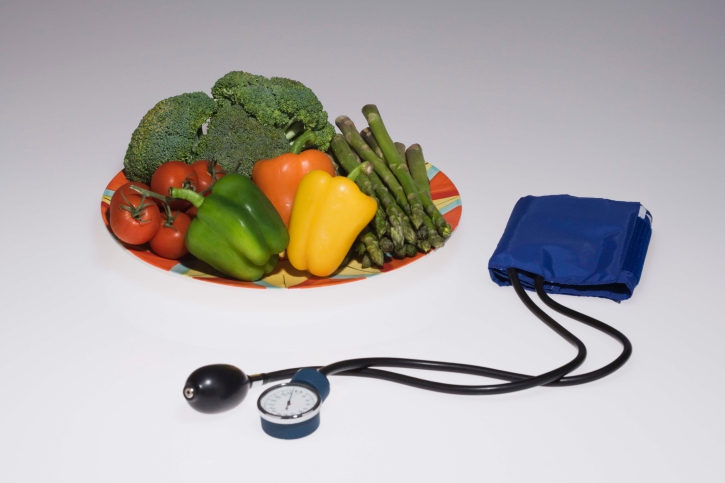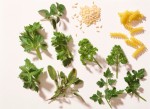The Heart Healthy News Brief: December 1 to 7, 2014
Compiled and edited by Staci Gulbin MS, MEd, RD, LDN
Zero-calorie sweeteners are probably safe
 Zero-calorie sweeteners have gotten a bad name in recent years, with claims that they cause weight gain and other health problems. However, a recent review of studies has shown that non-caloric sugar substitutes can be a safe part of a healthy balanced lifestyle. A study published in the American Journal of Clinical Nutrition found that over a six-month period, people who replaced their sugary drinks with zero-calorie sweetened beverages were less likely to have dessert than those who used water as a replacement. The non-caloric beverage group also was more likely to lose 5 percent of their body weight over 6 months than the water group. Other studies found that non-caloric sweeteners did not raise blood glucose levels or hunger as once thought. Although water is a very important part of a healthy lifestyle, if you are craving something sweet, reach for a diet sweetened beverage instead of a sugary soda or candy bar so that you can still lose weight.
Zero-calorie sweeteners have gotten a bad name in recent years, with claims that they cause weight gain and other health problems. However, a recent review of studies has shown that non-caloric sugar substitutes can be a safe part of a healthy balanced lifestyle. A study published in the American Journal of Clinical Nutrition found that over a six-month period, people who replaced their sugary drinks with zero-calorie sweetened beverages were less likely to have dessert than those who used water as a replacement. The non-caloric beverage group also was more likely to lose 5 percent of their body weight over 6 months than the water group. Other studies found that non-caloric sweeteners did not raise blood glucose levels or hunger as once thought. Although water is a very important part of a healthy lifestyle, if you are craving something sweet, reach for a diet sweetened beverage instead of a sugary soda or candy bar so that you can still lose weight.
Read more . . .
People with high blood pressure are gaining better control
 One-third of Americans have high blood pressure, which puts them at risk for heart attack and stroke. A recent report published in the journal Hypertension found that those with high blood pressure are gaining better control over their numbers, and in turn are lowering their risk of serious heart conditions. Between 2003 and 2012, the number of people who improved their blood pressure to pre-hypertensive levels increased by half, and those who lowered their blood pressure to normal levels doubled. Although this is good news, almost half of Americans with high blood pressure do not have control over their numbers. So eat heart-healthy foods, lower stress, stay active, quit smoking, and see your healthcare provider on a regular basis to keep your numbers under control.
One-third of Americans have high blood pressure, which puts them at risk for heart attack and stroke. A recent report published in the journal Hypertension found that those with high blood pressure are gaining better control over their numbers, and in turn are lowering their risk of serious heart conditions. Between 2003 and 2012, the number of people who improved their blood pressure to pre-hypertensive levels increased by half, and those who lowered their blood pressure to normal levels doubled. Although this is good news, almost half of Americans with high blood pressure do not have control over their numbers. So eat heart-healthy foods, lower stress, stay active, quit smoking, and see your healthcare provider on a regular basis to keep your numbers under control.
Read more . . .
Stay heart healthy by eating less red meat
 Heart healthy meal plans have always suggested cutting down on red meat, since it can be high in fat. However, a recent study has shown that red meat may also be unhealthy because of the protein it contains. A study in the journal Cell Metabolism revealed that the protein carnitine, found in beef, lamb, and other red meats, is converted by your body to compounds that speed up artery hardening. The redder the meat, the more carnitine it contains, and therefore the greater impact it will have on your arteries in the long term. Although this data is being used to find treatments to improve artery health, for now you can lower your intake of red meat and adopt a heart-healthy lifestyle to lower your risk of heart disease.
Heart healthy meal plans have always suggested cutting down on red meat, since it can be high in fat. However, a recent study has shown that red meat may also be unhealthy because of the protein it contains. A study in the journal Cell Metabolism revealed that the protein carnitine, found in beef, lamb, and other red meats, is converted by your body to compounds that speed up artery hardening. The redder the meat, the more carnitine it contains, and therefore the greater impact it will have on your arteries in the long term. Although this data is being used to find treatments to improve artery health, for now you can lower your intake of red meat and adopt a heart-healthy lifestyle to lower your risk of heart disease.
Read more . . .
Asthma might raise heart attack risk
 There are many different factors that can increase your risk of a heart attack, such as being overweight, having high blood pressure, or smoking. However, a new study by researchers from the Mayo Clinic has shown that people with asthma are over two-thirds more likely to have a heart attack. Since some symptoms of asthma attacks may be similar to those of a heart attack, like chest pain and shortness of breath, those with asthma should call 911 if any of these symptoms occur–even if they think it’s just an asthma attack. If you have a history of asthma or heart disease, visit your healthcare provider often, stop smoking, and stay as active as possible to keep your heart strong.
There are many different factors that can increase your risk of a heart attack, such as being overweight, having high blood pressure, or smoking. However, a new study by researchers from the Mayo Clinic has shown that people with asthma are over two-thirds more likely to have a heart attack. Since some symptoms of asthma attacks may be similar to those of a heart attack, like chest pain and shortness of breath, those with asthma should call 911 if any of these symptoms occur–even if they think it’s just an asthma attack. If you have a history of asthma or heart disease, visit your healthcare provider often, stop smoking, and stay as active as possible to keep your heart strong.
Read more . . .
Certain herbs may improve heart health
 Eating healthy can be hard at first, because cutting down on fat and salt can also cut down on flavor. However, herbs can provide a burst of flavor to many foods without the added calories or salt. In addition, a review published in the journal Nutrition Today has found that certain herbs can have great heart health benefits. A spice blend of garlic powder, rosemary, oregano, cinnamon, cloves, paprika, turmeric, ginger, and black pepper added to a high-fat meal lowered blood fats by nearly one-third, compared to those who ate the meal without the spice blend. A study of cinnamon found that the spice reduced blood fats and cholesterol levels in those with diabetes who consumed it. In another study, a spice blend was shown to raise antioxidant levels, or levels of anti-aging compounds in the blood, by nearly one-eighth. So before you eat, shake on a little spice to add flavor and health benefits to every meal.
Eating healthy can be hard at first, because cutting down on fat and salt can also cut down on flavor. However, herbs can provide a burst of flavor to many foods without the added calories or salt. In addition, a review published in the journal Nutrition Today has found that certain herbs can have great heart health benefits. A spice blend of garlic powder, rosemary, oregano, cinnamon, cloves, paprika, turmeric, ginger, and black pepper added to a high-fat meal lowered blood fats by nearly one-third, compared to those who ate the meal without the spice blend. A study of cinnamon found that the spice reduced blood fats and cholesterol levels in those with diabetes who consumed it. In another study, a spice blend was shown to raise antioxidant levels, or levels of anti-aging compounds in the blood, by nearly one-eighth. So before you eat, shake on a little spice to add flavor and health benefits to every meal.
Read more . . .

